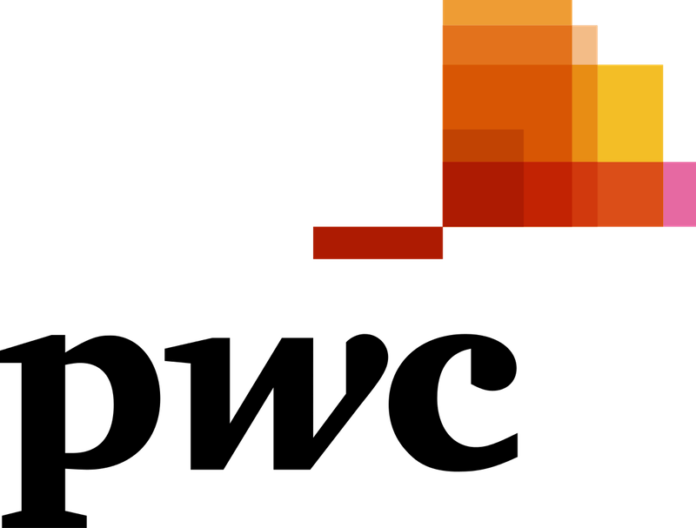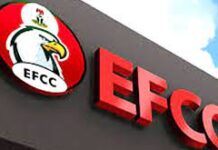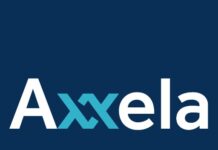PwC Report: Nigeria’s Advertising Industry Worth N605.2bn in 2023
CHIGOZIE AMADI
The report, which was titled, “Economic Contribution of the Marketing Communications Industry to the Nigerian Economy,” also revealed that every N1 spent on marketing communication in Nigeria has a Gross Domestic Product (GDP) multiplier effect of N16.50 kobo.
According to the report, “the total expenditure on marketing communications reached an impressive N605.2 billion in 2023, having grown at a remarkable compound annual growth rate (CAGR) of 18.7 per cent over the past six years, from N216 billion in 2018.
“This trajectory is projected to continue, with spending expected to reach N893 billion by 2028, contributing a significant 1.08 per cent to Nigeria’s GDP, up from 0.7 per cent in 2023.”
The report, which was commissioned by the Advertising Regulatory Council of Nigeria (ARCON) and funded by various associations in the industry, was carried out by PricewaterhouseCoopers (PwC) and presented to stakeholders yesterday, during a media briefing in Lagos.
The associations included the Experiential Marketers Association of Nigeria (EXMAN), the Association of Advertising Agencies of Nigeria (AAAN), the Outdoor Advertising Agencies of Nigeria (OAAN), the Media Independent Practitioners Association of Nigeria (MIPAN) and the Broadcasting Organisation of Nigeria, (BON).
Speaking at the presentation of the report, the ARCON Director General, Dr. Olalekan Fadolapo, expressed optimism about the industry’s recent strides, including the launch of an audience measurement initiative last week.
Fadolapo, in his remarks during the media briefing, strongly emphasised the need to quantify the industry’s size and impact as an economic enabler.
He said: “We cannot continue to guesstimate the size of the industry. This report lays the foundation for us to assess the advertising space and its multiplier effect on the economy every year going forward.”
He added that findings of the report underscored the industry’s paramount role as a catalyst for consumer demand, business expansion, employment and innovation across various sectors of the Nigerian economy.
Fadolapo, said as part of steps that ARCON has undertaken to advance the growth of the industry, which included the Audience Measurement and the GDP Multiplier effect report, the apex regulatory body is also set to hold an event on the audacious rebrand “Nigeria Project” amongst others that stemmed from the resolutions contained in the communique of the National Advertising Conference (NCF) in 2022.
The Chairman of the NCF, Mr. Tunji Adeyinka, explained that the 2022 conference highlighted a gap in understanding the industry’s contribution to the country’s GDP contribution, which prompted the decision to engage the PwC for a credible assessment.
Adeyinka, added that the report examined the advertising industry’s direct monetary contribution to the GDP and its multiplier effect, which is the amplified impact of advertising investment on overall economic output.
In his presentation, the Chairman of the Multiplier Study Committee, Dr. Femi Adelusi, revealed the profound impact of Nigeria’s marketing communications industry on the nation’s economic growth.
Adelusi said: “The marketing communications sector has emerged as a formidable economic powerhouse. The study estimates that for every N1 spent on marketing communications in Nigeria, the nation’s GDP increases by a staggering N16.5 – a multiplier effect that highlights the industry’s substantial value contribution.”
Dissecting the industry’s segments, Adelusi revealed that the top three contributors to marketing communication spending in Nigeria between 2018 and 2023 were cable TV (25.5 per cent), digital media (18.5 per cent), and creative & content production (13.4 per cent).
He said, “the proliferation of cable TV, driven by its diverse content offerings and affordable package options, has captivated a wide consumer base.
“Additionally, the surge in digital media spend, fueled by increased internet and mobile penetration, as well as the rise of social media and video-on-demand platforms, has reshaped the marketing landscape.”
The study also highlighted the growing influence of creative and content production, which recorded a CAGR of 15.8 per cent between 2018 and 2023, driven by the popularity of smartphones, social media engagement, and the appeal of real-time online content.
“The investment by video-on-demand platforms like Netflix and Amazon Prime in Nigerian productions, particularly in the thriving Nollywood industry, has further bolstered this segment,” he added.
While acknowledging challenges such as economic pressures, regulatory reforms, and competition from global players, the study underscored the industry’s strengths, including rising digital trends, opportunities for local and international partnerships, the ability to leverage technological innovations like AI and big data analytics, Nigeria’s large and culturally diverse market, and the potential for innovative, locally-tailored marketing approaches.
The report also contained key recommendations that would accelerate the industry’s growth and development, which included creating specific, measurable goals for the sector’s GDP contribution, establishing a Joint Industry Body (JIB) for operational coordination among broadcasters, agencies, and advertisers, as well as encouraging strategic alliances among industry players.
Other recommendations included embracing a “global” approach that combined international best practices with local initiatives, and utilising analytics tools to track spending patterns and consumer behavior meticulously.
“The marketing communications industry is an economic force that deserves recognition and support. By implementing these recommendations, we can unlock the industry’s full potential, drive sustainable growth, foster job creation, and cement Nigeria’s position as a leading marketing communications hub in Africa and beyond,” the report said.
Industry stakeholders have variously praised the study, hailing it as a move in the right direction.
Among the industry leaders that were present during the media briefing were the President, EXMAN, Mrs. Tolulope Medebem; Vice President of MIPAN, Mrs. Brenda Nwagwu; President of AAAN, Mr. Steve Babaeko; Mr. Kenny Ogungbe of the BON and the President, OAAN, Mr. Sola Akinsiuku.

























